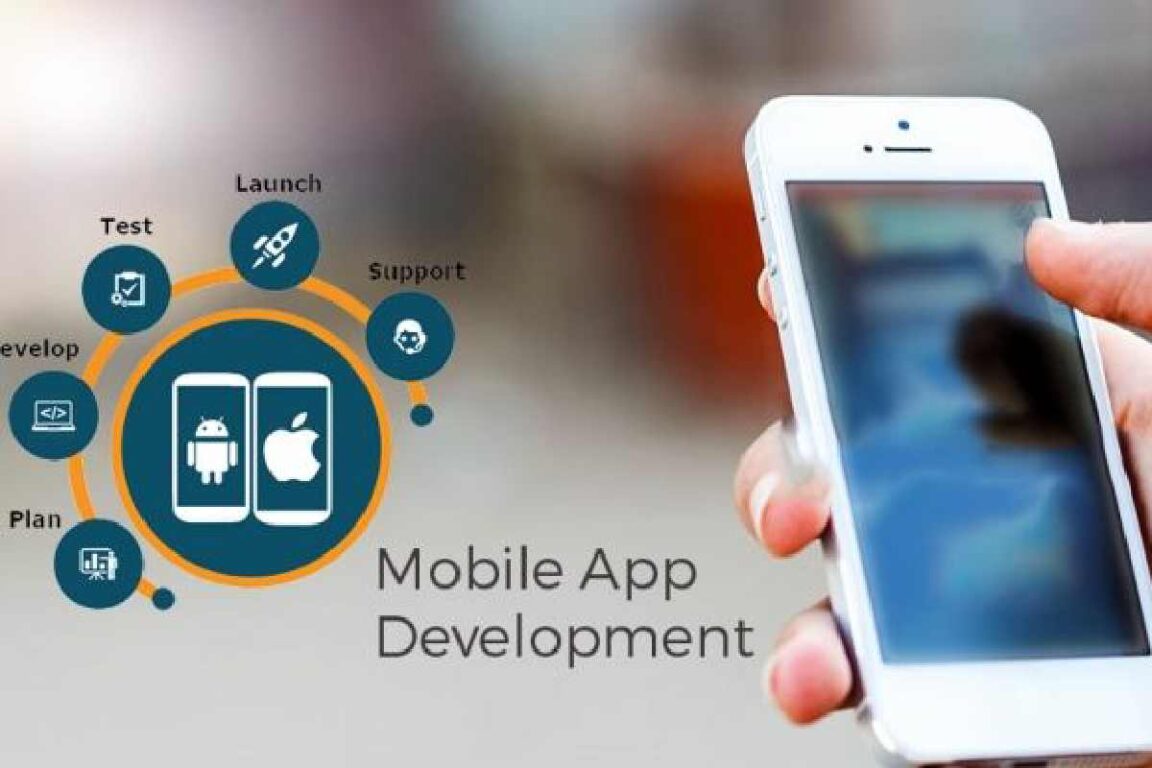Mobile app development is the process of generating software applications for devices such as smartphones and tablets. It is a subset of software development that is specifically focused on the creation of mobile apps.
The Mobile App Development Process Typically Involves the Following Steps:
Ideation – This is the process of coming up with the idea for the app. It involves defining the app’s purpose, features, and target audience.
Design – This is the process of creating the app’s user interface and user experience. It involves designing the app’s layout, graphics, and interactions.
Development – This is the process of coding the app. It involves writing the app’s code in a programming language that is supported by the target mobile platform.
Testing – This is the process of ensuring that the app is working correctly. It involves testing the app for bugs, performance, and compatibility.
Deployment – This is the process of making the app available to users. It involves uploading the app to the app store or other distribution platform.
Types of Mobile App Development
Native Apps
Native apps are apps which are specifically designed for a particular mobile platform, such as iOS or Android. They are typically written in the native programming language for the platform, such as Java or Swift.
Hybrid Apps
Hybrid apps are apps that are written in a web-based language, such as HTML5, JavaScript, or CSS. They can be run on multiple mobile platforms, but they may not be as performant or feature-rich as native apps.
Mobile app development is a complex process, but it can be a rewarding one. By following the steps outlined above, you can create a mobile app that is both useful and engaging.
Benefits of the Mobile App Development
- Reach a wider audience: Mobile apps can be used by people all over the world, regardless of their device or operating system.
- Increase customer engagement: Mobile apps can provide a more personalized and interactive experience for users.
- Generate revenue: Mobile apps can be monetized through in-app purchases, advertising, or subscriptions.
- Define your target audience: Who are you constructing the app for? What are their needs and wants?
- Do your research: What are the other apps in your space? What are they doing well? What could they do better?
- Set realistic expectations: Mobile app development takes time and effort. Don’t expect to create a successful app overnight.
4 Easy Steps to Make Mobile App Development Easier
Understand Your Users Before Starting Application Development
Your end users are core to the Android and iOS apps you are building. If you don’t know who your users are and how they consume native and web apps, it can cause chaos during development.
Define the Roadmap
You cannot build your mobile app without the underlying business logic. Similarly, iOS and Android developers should have a fixed roadmap that can help translate the vision into a complete mobile application.
At this point, you will need to determine the scope of work, the technology you would use, and individual software units for the application.
Design the UX
Unlike the web developer, the mobile developer needs to pay more attention to the end user. They should know if the app user will likely wait for the app and how long. Again the web application server differs from mobile servers; as a result, the execution and process requests would be different for mobile apps since the appropriate web application server sends static content such as HTML pages, videos, and images. As it is utilized and equipped with static content.
Hire the Right Team
Learning mobile app development and creating application software specifically designed for the users is no child’s play. We have discussed the issues that can come when you are developing the solution.
That’s why it is essential to manage the appropriate mobile app development team structure. You should also have a project manager to helm the development. Popular mobile apps have gained success in terms of downloads and users by outsourcing app development.
Conclusion
The mobile app development process might seem irresistible and involved. There are a lot of steps, and problematic decision-making is required along the way. But, it is an extremely worthwhile process and can be pretty lucrative. Also, there might be some temptation to skip steps in this procedure, but this guide is constructed upon years of experience working with app owners that chose to skip specific steps.


